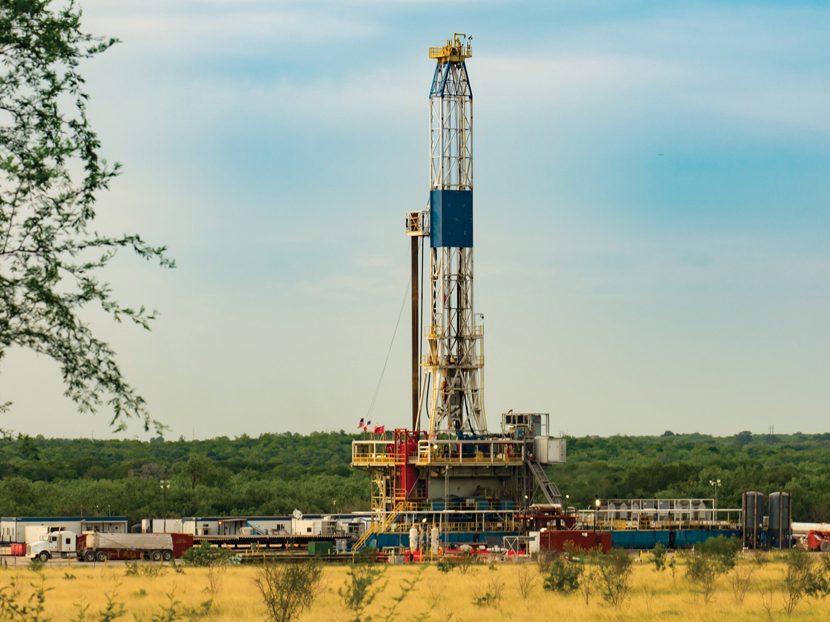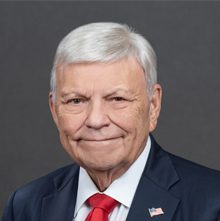A Perfect Storm
Oil price war and COVID-19 converged to cut oil production and slash capex spending.

As we approach the end of the second quarter of 2020, the PVF market has experienced a dramatic downturn due to the government lockdown of the economy in response to the COVID-19 virus, along with collapse of the oil market.
The market has been caught in a perfect storm of events that has never been experienced before. However, there is some glimmer of optimism as the nation begins to pump gas again as consumption increases due to some people returning to work.
Pricing for oil has moved slowly north from the lows experienced in April with WTI prices as of this writing at $24.63 per barrel and Brent Crude at $30.85 per barrel. Still, they remain more than 60 percent below the 2020 peak of $65.65 touched in January.
Drillers have cut an average of 55 rigs per week since mid-March after crude prices started to plunge due to the coronavirus and the oil price war between Saudi Arabia and Russia. The de-rigging began late in the first quarter, impacting well starts across the major U.S. oil shale plays. Analysts at Enverus Rig Analytics stated that the rig count was down 38 percent in April and 62 percent over 2019.
Capex Spending Slashed
U.S. financial services firm Cowen & Co. stated that 37 of the independent exploration and production companies they are tracking have cut spending plans since March, when prices began to plunge, by 45 percent for capex 2020.
Diamondback Energy Inc. curbed production by 10 percent in May and has sent home most of its fracking crews for the whole second quarter. The Midland, Texas-based firm expects to end this year with more than 150 wells that were drilled but never fracked, as producers avoid pumping oil into a vastly oversupplied market.
Executive Officer Travis Stice, when asked at what price the company would need before resuming production, stated the company’s priority would be restarting production that has been idled. Then Diamondback would consider bringing back frack crews to tap wells that were drilled but never fracked.
“There’s a lot of factors that weigh into that decision, but you have to have prices in the high 20s or low 30s before we signal going back to work in an aggressive or even a nonaggressive way,” he says.
Parsley Energy Inc., meanwhile, has curtailed a quarter of its output and temporarily abandoned its five-rig frack crew program.
Occidental Petroleum Corp. will cut an additional $1.2 billion from operating and corporate expenses, reducing its full-year capital budget to $2.4 billion to $2.6 billion. This is down from two reductions in March, and down 50 percent from its original 2020 capex guidance.
Enterprise Products Partners, a midstream pipeline operator, had a strong first quarter and remains resilient as uncertainty dominates the energy sector — caused by the COVID-19 pandemic and the collapse in global oil demand and prices.
The company has reduced or deferred 2020 capex by $1.1 billion. It still expects growth capital spending of between $2.5 billion to $3 billion this year.
Co-CEO Jim Teague says the company is functioning well in the volatile environment. Its natural gas liquids (NGL) fractionators are full, and NGL pipelines overall have not seen a downturn. The company’s oil pipelines are fully contracted and its Seaway crude pipeline is “virtually full.”
Enterprises says it has deferred or canceled 13 projects, including a planned crude oil pipeline, propane dehydrogenation unit and isomerization unit.
Projects Moving Forward
Projects continuing to move forward are two HGL fractionators at the Mont Belvieu, Texas, complex. Each fractionator will add 150,00 BBL/d of capacity, bringing the total capacity to 1.1 million BBL/d.
Pipeline projects that remain on track include Enterprise’s Midland-to-ECHO 3 crude pipeline, with a target in-service date in the third quarter. The related Midland-to-ECHO 4 has been slightly deferred to a forecasted in-service date late in the second half of 2021. Construction was originally planned to begin this summer.
Pioneer Natural Resources Co. of Dallas expects to operate five to eight horizontal rigs in the Midland basin. This includes one rig in the southern joint venture area during the second quarter through the fourth quarter of this year, with an average of two to three frac fleets during the same period.
The company has cut an additional $300 million from its drilling, completions and facilities capex budget, resulting in a revised 2020 total capital budget in the range of $1.4 billion to $1.6 billion.
Texas: No Mandated Production Cuts
Texas energy regulators announced May 5 that they will not mandate oil production cuts, ending a month-long debate about whether they should wade into global oil politics for the first time in 50 years as crude prices dropped to historic lows. Even with recent increases in futures to $24, local prices are still below the cost of production for some oil companies.
A motion to consider widespread production curbs, called proration, was dismissed by a May 5 vote of 2-1. Commissioner Chairman Wayne Christian states that the “industry and the market move a lot faster than we can as a regulatory body.”
With all the paring down of capital spending budgets, there still is sizable investments slated for the remainder of 2020.
With this in mind, along with the COVID-19 disruption in the supply chain of offshore welding fittings and forged steel flanges, we suggest you look to domestically manufactured material, including welding fittings and forged-steel flanges.
The scrutiny of imported low-cost materials has increased due to the low quality of products and fraudulent practices used by offshore manufacturers seeking to gain competitive advantage over domestic manufacturers.
Front-end cost savings can be, and are, offset by back-end costs incurred during fabrication, or installation, due to out-of-tolerances and alignment issues, along with increased liability exposure. Forensic cost analysis of projects conducted by several mechanical contractors and pipe fabricators have exposed the impact of additional work required to fabricate and install the material.
What is the real cost of procurement?
PVF Roundtable News
The June 16 networking meeting of the PVF Roundtable has been canceled due to the social distancing requirements to prevent the spread of the COVID-19 coronavirus.
The next scheduled networking meeting is Aug. 11. The meeting will begin at 4:15 p.m., ending at 8:00 p.m. and will be held at The Bell Tower on 34th in Houston.
Please refer to the PVF website (www.pvf.org) for further updates regarding scheduling for the networking meeting and golf tournament due to the COVID-19 crisis.
The PVF Roundtable board of directors urges you and your associates to attend the networking meetings, the golf tournament or the Trout Blast. This is where the decision-makers from all sectors of the PVF industry meet to network and exchange information and new ideas.
During these unusual times caused by the COVID-19 pandemic, the PVFRT board urges you to adhere to the presidential guidelines, including social distancing.





